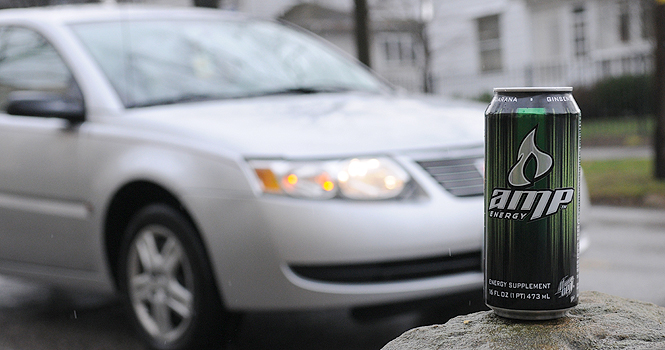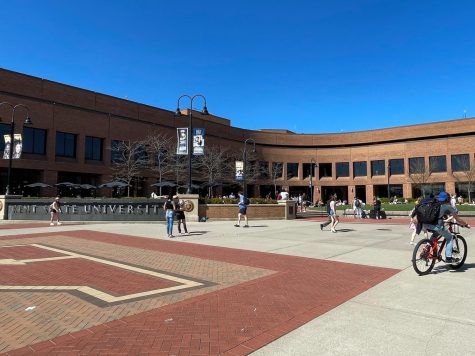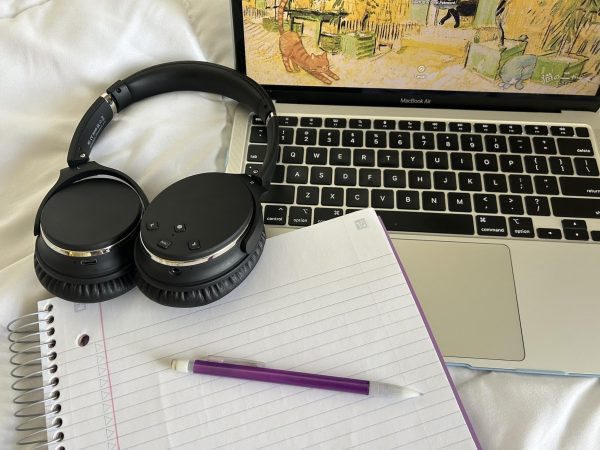Driving tired comparable to driving drunk
Symptoms of driving while sleepy or tired are very similar to driving while inebriated. Photo illustration by Phil Botta.
March 12, 2012
Kate Kaschalk, a 22-year-old senior art history and anthropology major, got into a car accident when she was about 10 years old because her mom fell asleep at the wheel.
“It was me and my four other siblings in the van at the time,” she said. “She glided into an empty parking lot and banked off a telephone poll.”
Kaschalk said even though no one was seriously hurt, the car was totaled and it was a surreal experience.
“It was a regular day and we were probably coming from a football game,” she said. “It felt really bizarre to be in that situation.”
According to the National Highway Traffic Safety Administration, there are approximately 100,000 car accidents that are due to ‘drowsy driving’ each year. It’s estimated in 1,550 deaths, 71,000 injuries, and $12.5 billion in monetary losses.
Angela DeJulius, chief physician at the Deweese Health Center, said driving while you are sleepy or tired is a risky activity.
“I think that is compatible to driving after a couple of drinks,” DeJulius said. “It still is considered impaired driving.”
She said the symptoms of driving while tired are also very similar to driving while inebriated.
“You probably would have a delayed reaction time and impaired concentration and attention span,” she said. “It also might affect your depth of perception. And then of course you might end up falling asleep.”
Kaschalk said although she now lives off campus in Stow, her schedule requires that she is on campus from early in the morning to the late evening. She takes classes and also works on campus.
“Being a double major can make you very tired,” she said. “If I know that I am tired and I have to do a lot of driving, I’ll try to get enough sleep the day before or try to stay caffeinated.”
DeJulius said sometimes juggling work and school can play a big role in how tired someone may be.
“That’s why there’s a limit with work hours for pilots, long-distance truck drivers and many other professions,” she said. “I do know of students who work night shifts and then come to class in the day. I would guess that they would be driving around pretty sleep-deprived.”
Senior music major Caitlin O’Connor said while driving in high school she once dozed off and started to go off the road, but quickly woke up after hitting a bump in the road.
She said since moving to Ohio she usually drives back to her hometown of Pittsburgh every month to visit her family and takes the necessary precautions to avoid falling asleep.
“I definitely get tired while driving to visit my family,” she said. “It is such a boring road and there is nothing to see, so I usually put down my windows for fresh air if I’m feeling tired. I would also put some music on that I like and just rock out. It keeps me awake.”
DeJulius said there are a few precautions that students can take to reduce tiredness if they have to drive.
“I’ve read advice that says if you feel tired when you have to drive, you should take a nap beforehand,” DeJulius said. “Even a 20-minute nap in a lounge in the library can improve your alertness.”
She said even the use of caffeine can help in these desperate situations.
“You can drink a cup of coffee and take a nap because it would take 20 to 30 minutes for the caffeine to absorb,” she said. “There is a reasonable use of caffeine and it does help alertness.”
Contact Samara Sands at [email protected].
























